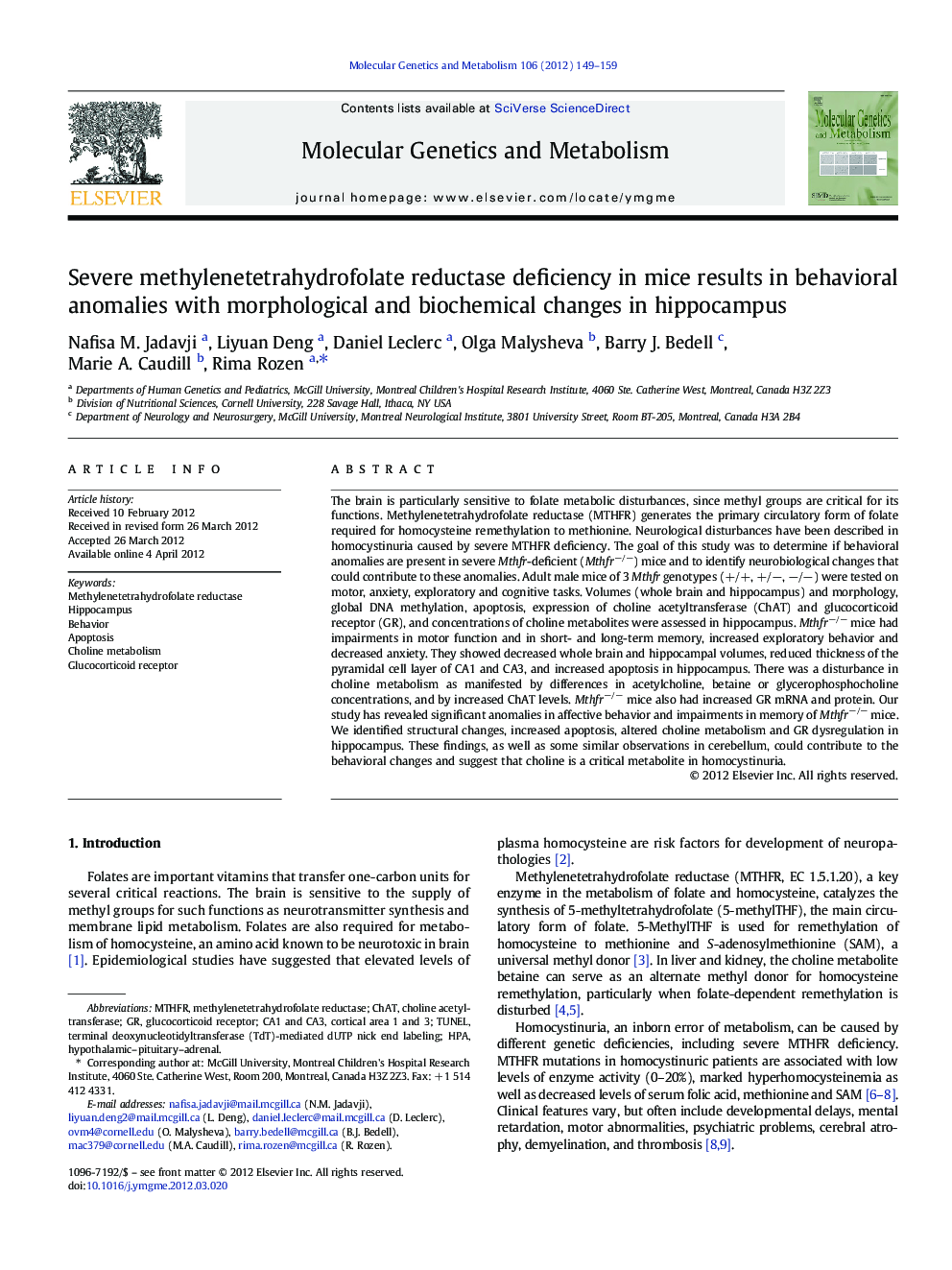| کد مقاله | کد نشریه | سال انتشار | مقاله انگلیسی | نسخه تمام متن |
|---|---|---|---|---|
| 1998385 | 1065802 | 2012 | 11 صفحه PDF | دانلود رایگان |

The brain is particularly sensitive to folate metabolic disturbances, since methyl groups are critical for its functions. Methylenetetrahydrofolate reductase (MTHFR) generates the primary circulatory form of folate required for homocysteine remethylation to methionine. Neurological disturbances have been described in homocystinuria caused by severe MTHFR deficiency. The goal of this study was to determine if behavioral anomalies are present in severe Mthfr-deficient (Mthfr−/−) mice and to identify neurobiological changes that could contribute to these anomalies. Adult male mice of 3 Mthfr genotypes (+/+, +/−, −/−) were tested on motor, anxiety, exploratory and cognitive tasks. Volumes (whole brain and hippocampus) and morphology, global DNA methylation, apoptosis, expression of choline acetyltransferase (ChAT) and glucocorticoid receptor (GR), and concentrations of choline metabolites were assessed in hippocampus. Mthfr−/− mice had impairments in motor function and in short- and long-term memory, increased exploratory behavior and decreased anxiety. They showed decreased whole brain and hippocampal volumes, reduced thickness of the pyramidal cell layer of CA1 and CA3, and increased apoptosis in hippocampus. There was a disturbance in choline metabolism as manifested by differences in acetylcholine, betaine or glycerophosphocholine concentrations, and by increased ChAT levels. Mthfr−/− mice also had increased GR mRNA and protein. Our study has revealed significant anomalies in affective behavior and impairments in memory of Mthfr−/− mice. We identified structural changes, increased apoptosis, altered choline metabolism and GR dysregulation in hippocampus. These findings, as well as some similar observations in cerebellum, could contribute to the behavioral changes and suggest that choline is a critical metabolite in homocystinuria.
► Behavioral and neurobiological studies were performed in Mthfr−/− mice.
► Mthfr−/− mice had impaired motor and cognitive function.
► They had thinner CA1 CA3 and dentate gyrus with increased apoptosis in hippocampus.
► Hippocampus and cerebellum had evidence of disturbances in choline metabolism.
► Our work may explain some neurological features of MTHFR deficiency in homocystinuria.
Journal: Molecular Genetics and Metabolism - Volume 106, Issue 2, June 2012, Pages 149–159